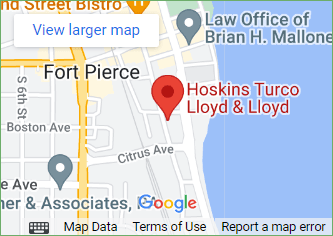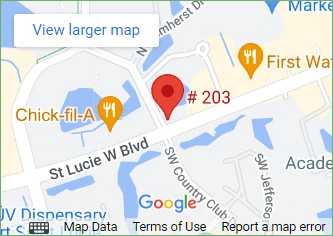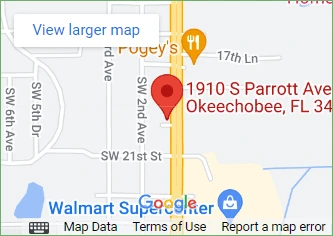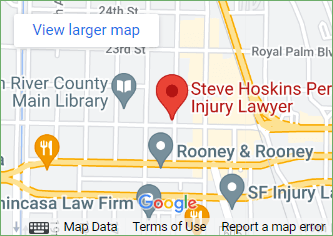Auto Accident Settlement
What are the alternatives to filing for bankruptcy?
When your financial future is on the line, you should consider every path you have available to you when figuring out what step to take next with your debt. Sometimes, bankruptcy makes the most sense and gives you the best chance at fully recovering from your difficult financial situation in the long run. Other times, you may be able to explore alternatives that are available to you given your unique financial situation.
In many cases, it may be prudent to work with your creditors to either reduce your debt or set up a repayment plan that works with your income. In some rare cases, your best option given your own concerns and preferences may even be to do nothing at all and default on your debt. If at the end of the day, bankruptcy is still the best option in your case, you can rest easy knowing you did your due diligence in seeking out alternatives and ensuring that it’s the best choice for you.
Deciding on whether or not to file for bankruptcy is a difficult decision, so much so that the US Federal Courts highly recommend seeking legal counsel before making any permanent decisions about it. If you’re considering filing bankruptcy, be sure to get in touch with an experienced Florida bankruptcy attorney in your area in order to get the assistance you will likely need throughout the process.
Bankruptcy Is the Only Way to Eliminate Debt Without Full Repayment or a Workout
All of these alternatives mention below can work great in certain unique cases, but those who are deep in debt may find that they still have no way to get out from underneath it. In these cases, know that bankruptcy is the only legally binding way to have debts eliminated, by way of a discharge. Once a debt is discharged, the creditor no longer has any legal authority to collect upon it.
While bankruptcy only affects unsecured debts, like credit cards and certain loans, it is still the best option for millions of Americans with no other strategy available to get them back on secure financial footing.
To help you understand what other alternatives exist, we have a listed a few of the most common ones below.
Work With Creditors to Settle Your Debt
Depending on how much you owe and who you owe it to, you may be able to reach a surprisingly agreeable “workout” settlement with your creditors either through a third-party debt settlement company, a seasoned bankruptcy lawyer who can work with creditors on your behalf or by negotiating directly.
Settling your debt requires your creditors to agree that you’ll pay back less than what you originally owe, which can be a difficult request in some cases. If you’ve been making regular monthly payments, you will have a hard time arguing that the amount you owe should be reduced, so usually, debt settlement is reserved for those who have already defaulted on their debt.
Debt settlements can also have a negative impact on your credit rating, just as filing bankruptcy can. If your creditors agree to allow you to pay less than your original debt, the part that you did not pay back will be considered income on that year’s taxes. It will also be reported to the three major credit reporting agencies in the US, which can bring your credit rating down.
Also of note, many “debt settlement” companies are actually unscrupulous creditors that have the effect of making your debt worse, not better. Be wary of any debt consolidation service that seems like it’s too good to be true or that could be an obvious scam.
Set Up a Repayment Plan
Getting in touch with a nonprofit debt counseling organization can be a great help when it comes to setting up a fair repayment plan. By enlisting their services, you may be able to negotiate payment plans with your creditors that make repaying your debt much easier. This alternative approach doesn’t necessarily include any debt settlement, which means you will have to pay back your debt in full, but it may buy you some much-needed leniency while you work to repay your debt.
Reduce Expenses, Sell Assets, or Find New Income
Chapter 7 bankruptcy, which is the most common form of bankruptcy, is also known as liquidation bankruptcy. In a Chapter 7 filing, many of your assets will need to be sold in order to pay back a certain amount of your debt before any forgiveness is granted. While certain assets are protected, there are many valuable possessions you may have that you would rather not lose in a bankruptcy filing.
However, by selling off some of your assets outside of bankruptcy, you have full control over what stays and what goes. If your debt isn’t too substantial, you may find that you are able to pay back a significant amount of what you owe.
Another alternative is seeking additional work to help increase the amount you’re able to pay back on a monthly basis. Seeking new employment can also boost the amount you make, so be sure to always keep your feelers out for new opportunities for employment.
Borrow Money From More-Forgiving Sources
The idea of borrowing money from family or friends in order to deal with looming debt can feel unsavory to many people. Despite the discomfort it might bring, it can often be the best option, particularly if you have connections that are well-off financially and willing to help out.
Quite often, family and friends are totally understanding of a troubling financial situation and may be happy to help out in whatever way they can.
However, in a case where you’re considering borrowing money from someone you care about, tread very lightly. Even if they offer more leniency than a debt collector or the government, a loan from a friend or family member should be taken just as seriously as a loan from a bank. Failing to pay back such a favor can result in permanent damage to the relationships that matter most to you.
Further, know that debts to family, friends, and associates are counted as part of overall debt held during a bankruptcy proceeding. Should you borrow money from these sources, you will need to list these debts on your petition forms. Further, you cannot pay back these debts immediately before you file for bankruptcy, since that would show preferential treatment. Overall, know that the courts consider these types of “informal” debts to be just as legally binding as any other credit source.
Get Help From a Florida Bankruptcy Lawyer to Find Out if Bankruptcy is Right For You
Seeking advice from a local attorney can help give you the confidence you need to take the next step with your debt. Whether you are beginning the process of filing bankruptcy or seeking alternatives, talking with a seasoned legal team can help put you on the right track.
Hoskins, Turco, Lloyd & Lloyd have been helping Florida residents deal with their debt for decades and can help you too. If you are dealing with a difficult financial situation and are ready to get out of the hole, give us a call at 866-460-1990 or contact us online to get the information you need to get started today.
Verdicts and Settlements
$1.2 Million
$1.6 Million
Wrongful Death Settlement
$11.1 Million
Settlement for motorcycle accident
Locations
Ft. Pierce, FL 34950
Suite 203, Port St. Lucie, FL 34986
Okeechobee, FL 34974
Vero Beach, FL 32960
The hiring of a lawyer is an important decision that should not be based solely upon advertisements. Before you decide, ask us to send you free written information about our qualifications and experience.
We are a debt relief agency and attorneys. We help people file for Bankruptcy relief under the Bankruptcy Code. The hiring of a lawyer is an important decision that should not be based solely upon advertisements. Before you decide, ask us to send you free information about our qualifications and experience.
Hoskins, Turco, Lloyd & Lloyd © 2020 All Rights Reserved. Terms of Use and Privacy Policy
This site is protected by reCAPTCHA and the Google Privacy Policy and Terms of Service apply.





